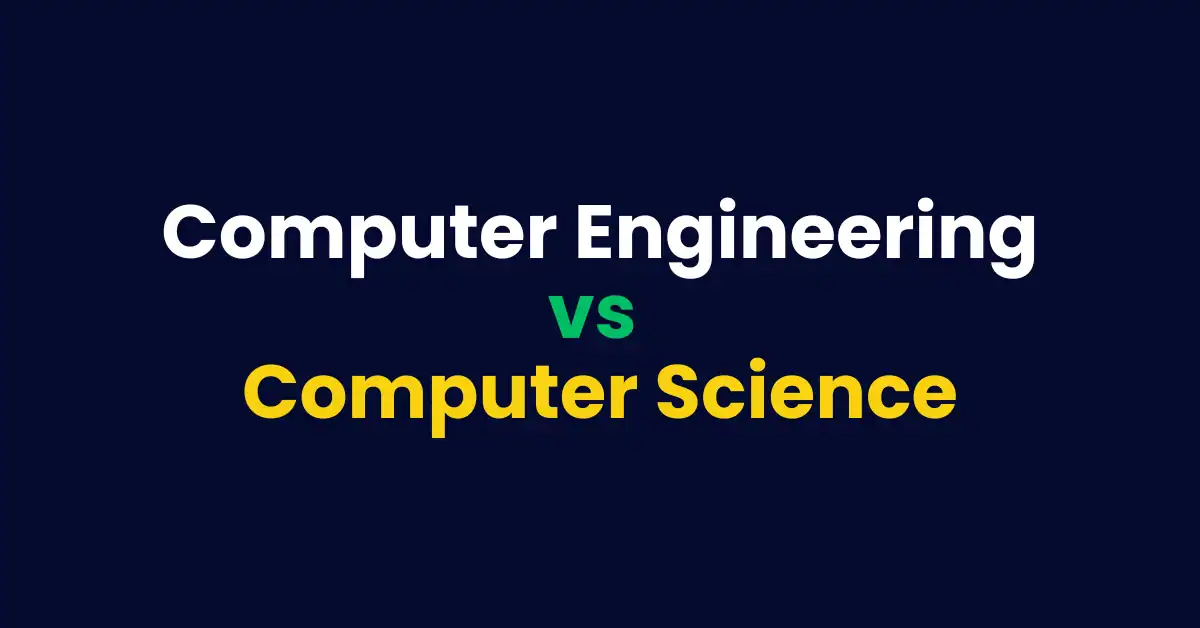In today’s tech-driven world, choosing between computer engineering and computer science can feel like trying to pick a favorite ice cream flavor at a gourmet shop—overwhelming but exciting!
Both fields drive our modern lives, but deciphering the differences can be a puzzle. If you’re wrestling with this decision, fret not! We’re here to demystify the choices, paving your way to a career that best suits your passion and skills.
Understanding the Basics
What is Computer Science?
Computer Science is essentially the study of problem-solving using computers. This field encompasses the theoretical foundations of information and computation, along with practical techniques for software implementation.
Computer scientists are primarily concerned with software, algorithms, and data structures. They delve into programming languages, ranging from Python to Java, and explore areas like software development, systems software, and web applications. If you revel in coding and software design, then computer science might just be your calling.
What is Computer Engineering?
Where computer science leans towards software, Computer Engineering merges the worlds of electrical engineering and computer science to focus on the hardware-software integration. Computer engineers engage in designing and developing computer systems and other technological devices.
This field involves working with processors, circuit boards, memory devices, networks, and routers. Essentially, if your curiosity is piqued by making hardware and software work seamlessly together, computer engineering could be your ideal match.
Educational Paths and Career Prospects
Educational Requirements
Both fields require a strong foundation in mathematics and logical reasoning, but their educational paths diverge with specialized courses. Computer science students will spend a lot of time mastering different programming languages and learning about software environments.
In contrast, computer engineering programs emphasize courses on hardware architecture, robotics, and electronics alongside software engineering.
Career Opportunities
A degree in computer science can lead to various roles such as software developer, systems analyst, or database administrator in industries ranging from tech startups to financial corporations.
Computer engineering graduates often find themselves in roles like hardware engineer, network architect, or embedded systems engineer, working anywhere from consumer electronics firms to government defense projects. Both fields offer abundant opportunities, but the choice depends on whether you prefer coding software or building hardware.
Real-world Applications and Impact
Impact in Everyday Life
Computer scientists and engineers both contribute significantly to the technology you use daily. From the operating system on your smartphone to the security software protecting your data, computer scientists develop software solutions that enhance our interactions with tech.
Meanwhile, computer engineers ensure that the hardware of these devices is robust, efficient, and ready to support the latest software innovations.
Leading Innovations and Contributions
Both fields drive technological progress. Computer scientists have been at the forefront of developing artificial intelligence algorithms and machine learning models that power everything from Google search algorithms to autonomous vehicles.
On the hardware side, computer engineers develop the necessary electronic components and computer systems that sustain major advancements in robotics and Internet of Things (IoT) devices.
Salary Expectations and Job Growth
Salary Ranges and Trends
According to the U.S. Bureau of Labor Statistics, the median annual wage for computer science occupations was around $91,250, whereas computer engineers typically earned a bit higher, reflecting the additional complexity of their work with hardware.
Salaries in both fields vary widely by experience, location, and the specific technologies you work with.
Future Job Outlook
The demand for both computer scientists and engineers is projected to grow steadily as technology continues to advance.
The expansion of cloud computing, big data, and cybersecurity will likely drive an increased need for computer scientists, while advancements in hardware-related areas like semiconductors and smart devices will fuel the demand for computer engineers.
Making Your Decision
Factors to Consider
Choosing between computer science and computer engineering boils down to your interests and career goals. If you’re fascinated by software and application development, go for computer science.
If it’s the innovation in physical devices and systems that excites you, computer engineering might be the way to go.
Resources for Further Exploration
For those still on the fence, consider checking out online resources such as Coursera or MIT OpenCourseWare. These platforms offer free courses in both fields to help you get a taste of what each has to offer.
Conclusion
Whether you choose computer science or computer engineering, you’re stepping into a field brimming with opportunities to make a significant impact.
Consider your personal interests, skills, and career aspirations carefully, and you’ll find the path that not only meets your professional goals but also ignites your passion.
FAQs
Q1: Which field is better for someone who loves both programming and hardware?
A1: If you enjoy both, you might consider looking into fields like robotics or embedded systems, where both skills are vital.
Q2: What are the best universities for computer science and computer engineering?
A2: Top universities include MIT, Stanford, and UC Berkeley, but many other institutions offer excellent programs.
Q3: How quickly can I switch careers from computer science to computer engineering?
A3: Transitioning can be swift with some additional training, especially if you already have a solid foundation in the basics of both fields.
Q4: Are there any online resources where I can learn more about both fields for free?
A4: Yes, websites like Khan Academy, Coursera, and edX offer courses in both computer science and engineering.
Q5: What kind of projects can I work on as a student to boost my resume in either field?
A5: Consider developing open-source software projects, participating in hackathons, or building your own computer from scratch.






